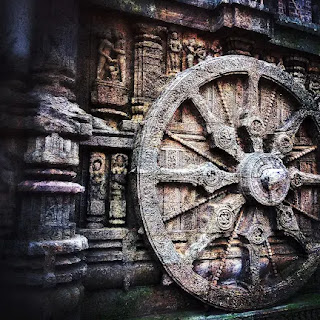The concept of the rule of law is an integral component of the
modern constitutional form of government. It is impossible to conceive of democracy
and constitutionalism without it. Rule of law is a natural corollary and
animation of the natural rights of humans.
The rule of law has generally been understood as encompassing
the following three aspects:
1.
Paramountcy
of the law
2.
Equality
before the law
3.
The
predominance of a legal spirit.
Within Indian Constitution, the spirit of the rule of law is
represented by Article 14 which has been given the status of a fundamental
right.
Rule of law is neither a ‘rule’ nor a ‘law’, but rather a doctrine
of ‘state political morality’ that strives to find the right balance between
the ‘powers’ of the state, and the ‘rights’ of individuals. It expresses the
aspiration common to all free societies to be ruled by laws, rather than
powerful men.
The term rule of law is derived from the French phrase, la
principe de legalite (the principle of legality) which refers to a
government that is opposed to the use of arbitrary power.
The concept of the rule of law is better understood as a
moral precept than a positive law. It is an ideal that democratic societies
aspire to. It is a bulwark against powerful men, as well as bigoted majorities.
The concept of rule of law may also be understood as the insistence that power be accountable and governance just and equitable.
A V Dicey’s concept of the rule of law contemplates the absence of discretionary power in the hands of the monarch and his functionaries. Power should be able to justify publicly that it is valid and just. Dicey often used the term rule of law in contradistinction to what he referred to as the rule of man. As a legal ideal and aspirational concept, rule of law may also be understood as the modern name for natural law.
As has been observed in the foregoing, rule of law cannot be understood as a positive law, as no rights or liabilities flow directly from it. However, in some instances, when the travesty of justice is so gross as to endanger the very basis of a constitutional form of government, a litigant may evoke this concept while arguing his case. A good example is ADM Jabalpur v Shivkant Shukla (popularly also known as the ‘Habeas Corpus’ case, wherein detention orders were challenged on the ground that they violated the principles of rule of law. Though the challenge did not succeed, the Supreme Court did not rule out the idea that the concept of the rule of law could form the basis for building a case against the high-handedness of state actors.
And again, in Kesavananda Bharti v State of Kerala, some judges deemed rule of law to be an aspect of the doctrine of the Basic Structure of the Constitution.
In Indira Gandhi v Raj Narain, the Supreme Court invalidated clause (4) of Article 329-A inserted in the Constitution by the 39th Constitutional Amendment Act, 1975. It was meant to keep disputes over the office of the Prime Minister outside the scope of judicial review. The Supreme Court observed that taking away the jurisdiction of the Supreme Court to try a case on merits cannot be done without injuring the basic postulates of the rule of law.
In P Sambamurthy v State of AP, the Supreme Court struck down Article 371-D (5) of the Constitution on the ground that it violated the principle of rule of law which is an aspect of the Basic Structure Doctrine. The court stated that it is a basic principle of the rule of law that the exercise of power by the executive or by any other authority must not only be conditioned by the Constitution but must also be in accordance with the law and the power of judicial review as conferred by the Constitution.
In the State of Bihar v Sonawati Kumari, it was observed that
the concept of the rule of law is binding on all sources of authority, including
government officials. Nobody is exempted from obeying the rules.
In Bachan Singh v the State of Punjab, (popularly referred to
as the ‘Death Penalty Case’, the court said that arbitrary action is alien to the
rule of law. Wherever there is arbitrary action, the rule of law is denied.
In Som Raj v State of Haryana, the Supreme Court observed
that the absence of arbitrary power is the first postulate of the rule of law
upon which our entire constitutional edifice is based. If discretion is exercised
without any principle or without any rule, it would amount to a situation antithetical
to the rule of law.
Dicey’s formulation of the concept of rule, which according
to him forms the basis of English constitutional law, contains three principles:
- Absence of discretionary power in the hands of the state actors. ‘Justice ought to be done through known principles. Discretion implies arbitrariness.
- No person should be made to suffer either physically or in terms of property except for a breach of law established through a fair trial before a court of law. This implies, a) the absence of special privileges for a government official or any other person. b) all persons regardless of their status must be subjected to the ordinary courts of the land. c) all persons should be governed by the law passed by the ordinary legislative organs of the state.
- The rights of the people must flow from the customs and traditions of the people recognized by the courts in the administration of justice. This last principle is sometimes also referred to as the principle of the predominance of the legal spirit- implying that the rule of law is neither a privilege nor a concession given by the state.

Comments
Post a Comment